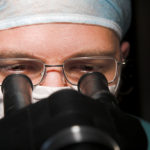
Innovative new Health and Wellbeing Academy opens at Swansea University
A new Health and Wellbeing Academy which aims to give people more support to lead healthier lives is being officially opened today by Wales’ Health Secretary Vaughan Gething (WalesOnline, 2017). The academy offers a range of services, complementing those already being provided by the NHS. It includes an audiology department which provides hearing tests and … Continue reading Innovative new Health and Wellbeing Academy opens at Swansea University

Cryogenically frozen hearts could one day be used in transplants
Scientists have succeeded in cryogenically freezing and rewarming sections of heart tissue for the first time, in an advance that could pave the way for organs to be stored for months or years (The Guardian, 2017). If the technique scales up to work for entire organs, and scientists predict it will, it could save the … Continue reading Cryogenically frozen hearts could one day be used in transplants

Artificial mouse embryos created in the lab
Artificial mouse embryos grown from stem cells in a dish could help unlock secrets of early development and infertility (New Scientist, 2017). Magdalena Zernicka-Goetz at the University of Cambridge and her team made the embryos using embryonic stem cells, the type of cells found in embryos that can mature into any type of tissue in … Continue reading Artificial mouse embryos created in the lab
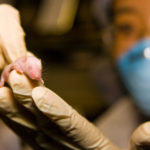
Genetic variation is the reason some immune systems overreact to viruses
Researchers at Cardiff University have discovered genetic variation is the reason why some immune systems overreact to viruses (Cardiff University, 2017). Previous research had revealed that a gene called Ifitm3 influences how sensitive people are to influenza, with a variant form of the gene making cells more susceptible to viral infection. This new research reveals … Continue reading Genetic variation is the reason some immune systems overreact to viruses
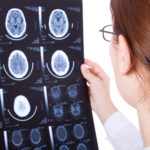
High blood pressure can be reduced with deep brain stimulation
A Bristol team has used a deep brain stimulation technique to dramatically reduce a woman’s high blood pressure, the first time in the world the procedure has been carried out for hypertension (University of Bristol, 2017). The case led by North Bristol NHS Trust consultant neurosurgeon Nik Patel working alongside researchers at the University of … Continue reading High blood pressure can be reduced with deep brain stimulation

New drug class kills human whipworm
The human whipworm, which infects five hundred million people and can damage physical and mental growth, is killed at egg and adult stage by a new drug class developed at the University of Manchester, University of Oxford and University College London (University of Manchester, 2017). Current treatments for human whipworm are based on nineteen sixties … Continue reading New drug class kills human whipworm
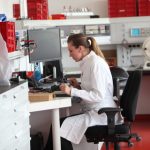
New approach to reducing diabetes risk
An international clinical trial conducted by the University of Liverpool has shown that the drug liraglutide 3.0 mg may reduce diabetes risk by 80% in individuals with obesity and pre-diabetes according to a study published in The Lancet (University of Liverpool, 2017). The three year SCALE obesity and pre-diabetes trial followed 2,254 adults with pre-diabetes … Continue reading New approach to reducing diabetes risk

Parasitic genome sequenced in the battle to save honey bees
The genome of a parasitic mite that infects honey bee colonies and causes wide-spread destruction has been sequenced by scientists at the University of Liverpool and Xi’an Jiaotong-Liverpool University (University of Liverpool, 2017). Although there are many potential causes for the decline in honey bee colonies, pathogens and parasites of the honey bee, particularly mites, … Continue reading Parasitic genome sequenced in the battle to save honey bees
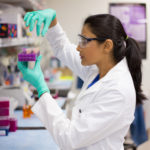
People with Addison’s disease lack natural killer immune cells
Research led by University of Birmingham scientists has found that people with Addison’s disease have an immune system defect which makes them prone to potentially deadly respiratory infections (University of Birmingham, 2017). The study, published online in European Journal of Endocrinology, shows for the first time that patients with primary adrenal insufficiency (PAI) have natural … Continue reading People with Addison’s disease lack natural killer immune cells

MoU between Cardiff University and Monash University
Cardiff University’s Systems Immunity Research Institute and the Biomedicine Discovery Institute at Monash University have signed a memorandum of understanding (Cardiff University, 2017). The five year mutual agreement recognises highly productive joint projects already being conducted around inflammation and immunity, and provides a mechanism for enabling additional projects in the areas of research collaboration, exchange … Continue reading MoU between Cardiff University and Monash University








